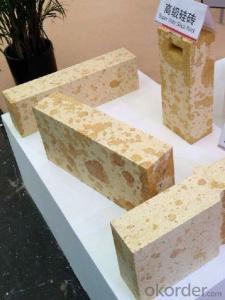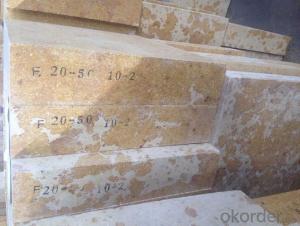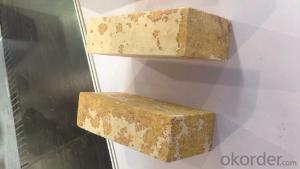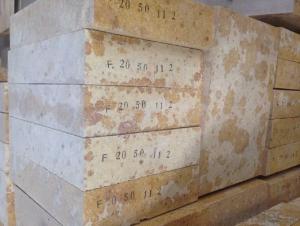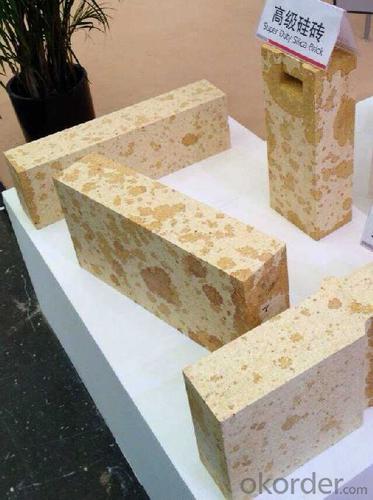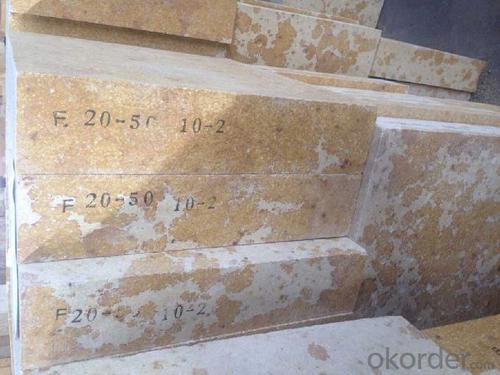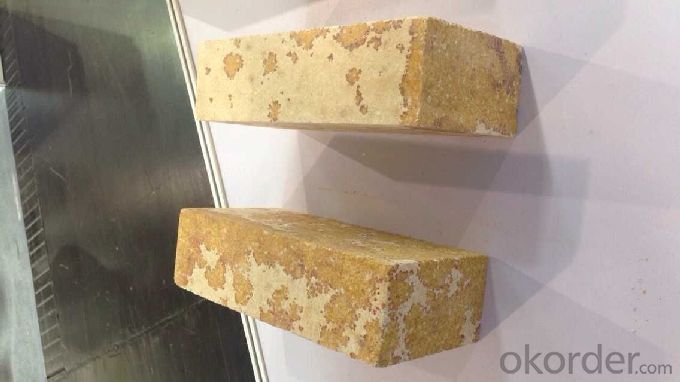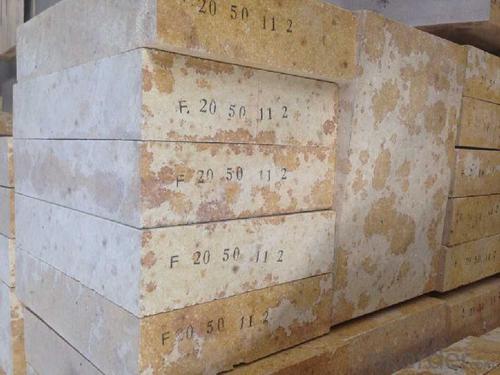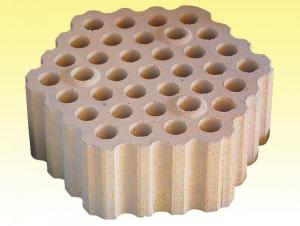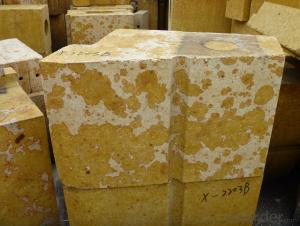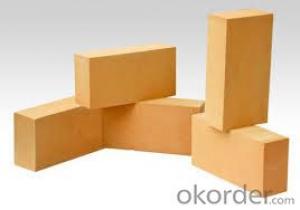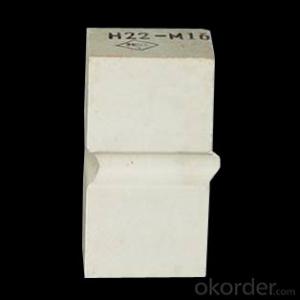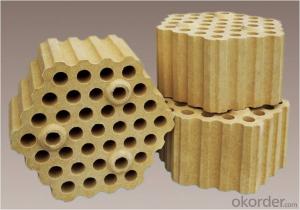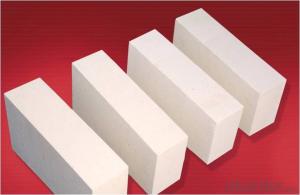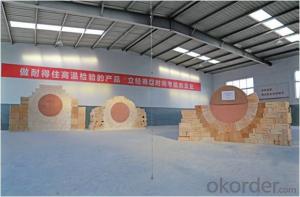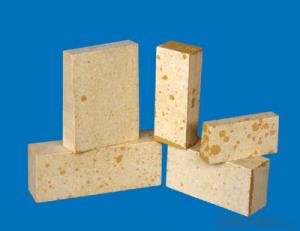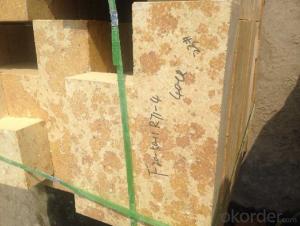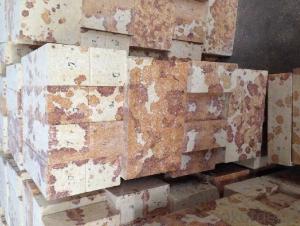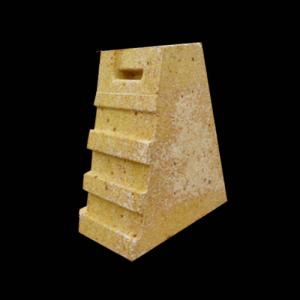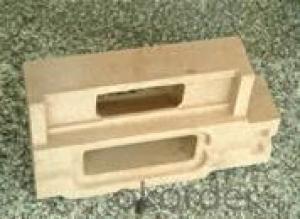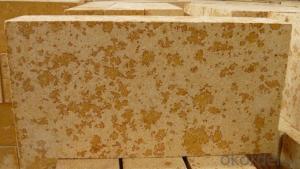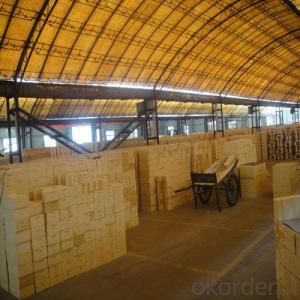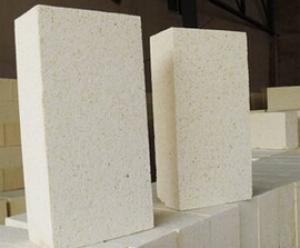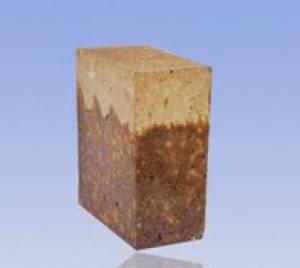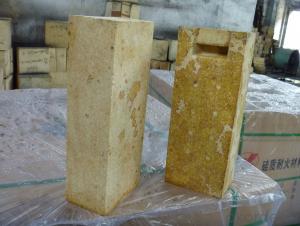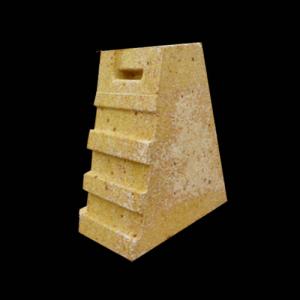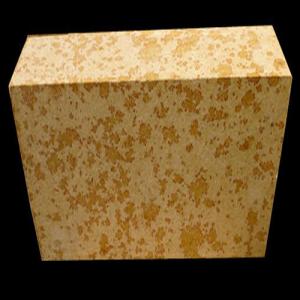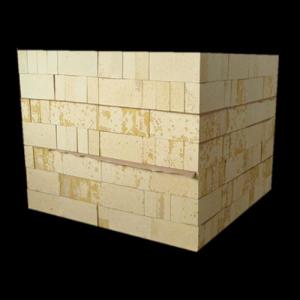Alumina Silica Fire Brick S-96B for Hot-Blast Stoves
- Loading Port:
- Tianjin
- Payment Terms:
- TT OR LC
- Min Order Qty:
- 15 m.t
- Supply Capability:
- 30000 m.t/month
OKorder Service Pledge
OKorder Financial Service
You Might Also Like
General Information
CMAX Silica bricks are made from high quality quartz tail sand, lime and mineralizing agent through the process of crashing, screening, mixing, pressing, drying and sintering.
Application
CMAX Silica bricks are commonly applied in
Coke oven
Hot blast stoves
Glass furnace
Features
High refractoriness under load
High mechanical strength
Excellent thermal shock resistance
Corrosion resistance.
Superior resistance to acids (including oxidizing)
Resistance to chlorine
Resistance to thermal shock and pressure changes
Low thermal and chemical expansion
Technical Data
ITEM | For Hot-Blast Stoves | For Glass Furnace | ||||||
S-94 | S-95 | S-95B | G-94 | G-95A | G-95B | G-96A | G-96B | |
SiO2, % | ≥ 94 | ≥ 95 | ≥ 95 | ≥ 94 | ≥ 95 | ≥ 95 | ≥ 96 | ≥ 96 |
Fe2O3, % | ≤ 1.5 | ≤ 0.5 | ≤ 1 | ≤ 1.5 | ≤ 1.2 | ≤ 1.2 | ≤ 0.8 | ≤ 1 |
Residual Quartz, % | ≤ 1 | ≤ 1 | ≤ 1 | ≤ 1 | ||||
Apparent Porosity | ≤ 23 | ≤ 23(24) | ≤ 21(23) | ≤ 24 | ≤ 22(24) | ≤ 22(24) | ≤ 22(24) | ≤ 22(24) |
True Density, g/cm 3 | ≤ 2.35 | ≤ 2.34 | ≤ 2.33 | ≤ 2.35 | ≤ 2.35 | ≤ 2.34 | ≤ 2.34 | |
Cold Crushing Strength, Mpa | ≥ 29.4 | ≥ 30(27) | ≥ 30(20) | ≥ 30 | ≥ 30(35) | ≥ 30(35) | ≥ 30(35) | ≥ 30(35) |
Refractoriness Under Load, º C | ≥ 1650 | ≥ 1600 | ≥ 1630 | ≥ 1660 | ≥ 1650 | ≥ 1680 | ≥ 1670 | |
Permanent Linear Change, % | 1500º CX4h, ± 0.2 | 1450º CX2h, ± 0.5 | ||||||
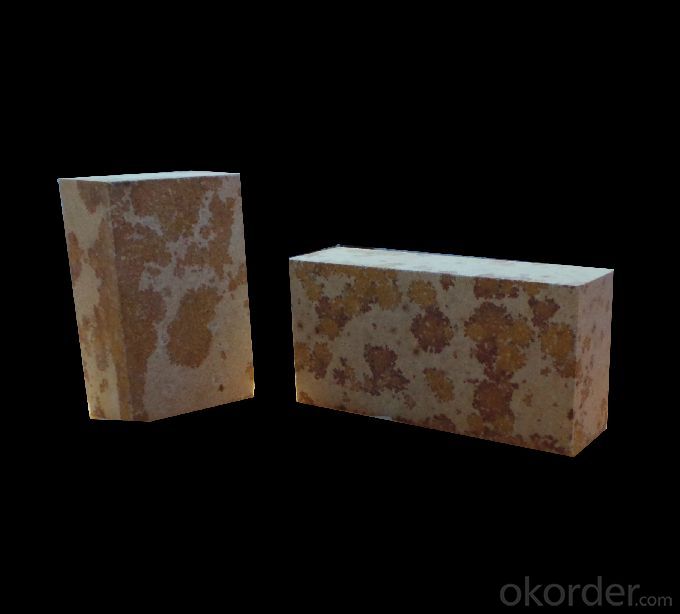
- Q: Physical solid waste disposal
- Reduce crack production and improve yield. The amount of addition is related to the shape and weight of the brick. The bricks can be added to 20% weight less than 25kg; bricks above 25kg can be added to 30%; for the specific type of brick can be added 30%. into waste silica brick should pay attention to this problem
- Q: Why is the new trend of the high thermal conductivity of silica brick
- The high thermal conductivity of silica brick all inherits the advantages of traditional coke oven silica brick, on the basis of further highlight the characteristics of high thermal conductivity.
- Q: What is the main material of silica brickIt's common, the kind we see so often!
- An acid refractory consisting mainly of quartz and square quartz and a small amount of residual quartz and glass.
- Q: Glass kiln brick for physical and chemical indicators?
- Glass kiln with high quality silica brick with silicon oxide content, low melt index, mainly used for glass kiln crown, parapet, wall hanging, small furnace arch superstructure and regenerator.
- Q: Which material is good for furnace refractory?
- Basic refractories in Magnesium Oxide and calcium oxide as the main ingredient, commonly used is brick. Magnesium Oxide 80% to more than 85% containing magnesia brick, has good resistance to alkaline slag and slag, refractory clay brick and brick high ratio. Mainly used in open hearth furnace, oxygen converter, electric furnace, non-ferrous metal smelting equipment and high temperature equipment.
- Q: The brick is mainly used in the place?
- Open hearth furnace regenerator and a sediment chamber, soaking furnace, glass furnace refractory materials and ceramic brick kiln, kiln vault and other load-bearing parts.
- Q: How to judge the quality of brick, clay brick, high alumina brick furnace from the appearance?
- Mainly depends on the color and density of brick. Another black clay brick and brick with iron oxide formation and how much the size of bricks
- Q: Can iron oxide be used as refractory material?
- Iron oxide can not be used as refractory material, but it can be used as refractory additive. Iron oxide can be used as pigment
- Q: The high thermal conductivity of silica brick and traditional brick what is the difference?
- Tridymite content high thermal conductivity silica brick is 70%, tridymite content of traditional brick is 60%, tridymite content high thermal conductivity of silica brick than tridymite high content of 10% traditional brick,
- Q: Physical solid waste disposal
- The amount of addition is related to the shape and weight of the brick. The bricks can be added to 20% weight less than 25kg; bricks above 25kg can be added to 30%; for the specific type of brick can be added 30%. into waste silica brick should pay attention to this problem
Send your message to us
Alumina Silica Fire Brick S-96B for Hot-Blast Stoves
- Loading Port:
- Tianjin
- Payment Terms:
- TT OR LC
- Min Order Qty:
- 15 m.t
- Supply Capability:
- 30000 m.t/month
OKorder Service Pledge
OKorder Financial Service
Similar products
Hot products
Hot Searches
Related keywords
